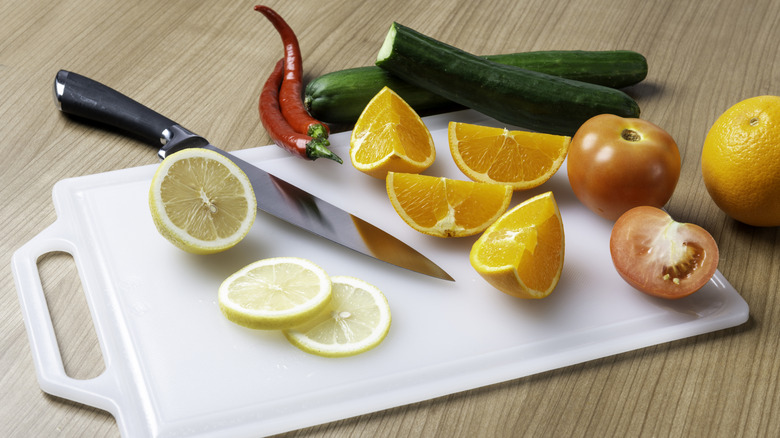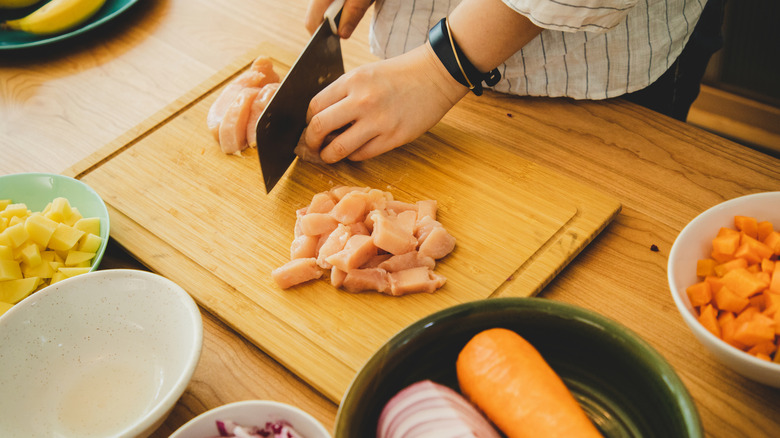Why Your Plastic Cutting Board Isn't As Safe As You Thought
Plastic cutting boards are prized for their versatility, easy-clean up, and affordable price point. But did you know that your plastic cutting board might be harmful to your health? That's according to a 2023 study published in "Environmental Science and Technology," a peer-reviewed scientific journal, which found that plastic cutting boards release a staggering amount of microplastics into our diet.
In the study, researchers cut vegetables on plastic cutting boards. They examined cutting boards made of two types of plastic: polyethylene, commonly used in shopping bags and plastic wrap, and polypropylene, which frequently makes up plastic chairs and syringes. The researchers discovered that with regular usage, a single person could be exposed to up to 50 grams of microplastics annually from their plastic cutting board, or over four times the weight of a AAA battery.
More data is needed on the long-term impacts of microplastic consumption, but preliminary research has found a connection between microplastics and various health concerns, including potential effects on metabolic function, endocrine disruption, colon cancer, as well as heart attacks and stroke. Once these plastic particles enter your system, there's no proven way of removing them, either. It's commonly said that you eat a credit card's worth of plastic every week, and while the jury's still out on that claim, it's a startling revelation to think about how much plastic could enter our bodies just from cooking dinner.
How to reduce your exposure to cutting board microplastics
You might be wondering what you can do to limit your exposure to microplastics in the kitchen. Unfortunately, avoiding microplastics entirely is just about impossible, as they can be found in the air we breathe, the water we drink, and the food we eat. That being said, there are several tips to help reduce the consumption of microplastics, and ditching your plastic cutting board is a great start.
Wooden cutting boards are a top choice by chefs around the world. Unlike plastic, they cannot be thrown in the dishwasher and need to be seasoned with a protective finish, like a food-grade mineral oil. At the same time, they're knife-friendly, helping to keep your blades extra sharp compared to plastic, and naturally antimicrobial, resisting bacteria from foods such as raw chicken. Similarly, bamboo cutting boards are a great plastic-free alternative. They're a little bit tougher than wood and won't show knife marks after you've used it.
Glass cutting boards, while notoriously tough on knives, are dishwasher-safe and do not absorb your food's odors or bacteria. They also boast a super modern feel, helping your kitchen look sleek, refined, and sophisticated. While there's no perfect alternative out there, plastic-free cutting boards can help to reduce your microplastic exposure at least a little. It's a small switch that could make a big impact.

